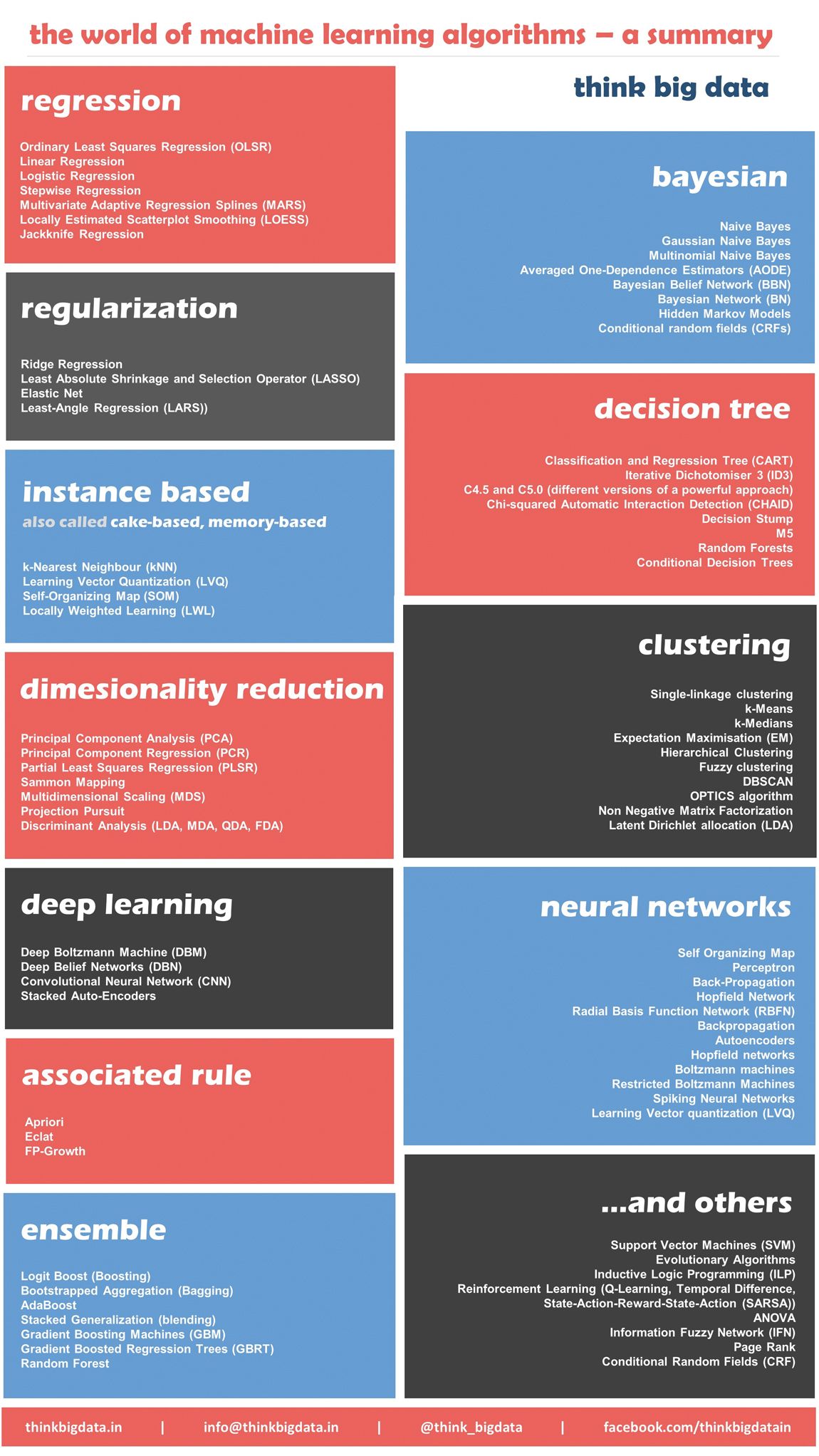12 Algorithms Every Data Scientist Should Know

Algorithms have become part of our daily lives and they can be found in almost any aspect of the business. Gartner calls this the algorithmic business and it is changing the way we (should) run and manage our organizations. There are all kinds of algorithms and for each aspect of your business, there are different algorithms, which nowadays you can even buy at an algorithm marketplace. Algoritmia provides developers with over 800 algorithms in the fields of audio and visual processing, machine learning and computer vision, saving developers precious time and money.
However, the algorithms available on the Algoritmia marketplace might not be suitable for your particular need. After all, for different circumstances, you require different algorithms and the same algorithm in a different environment can produce different results. In fact, there are many different variables that determine which algorithm to be used and how the algorithm will perform. These variables include the type and volume of the data, the industry the algorithm will be applied to, the application it will be used for etc.
Therefore, sometimes buying an off-the-shelve algorithm and then tweaking it might not be the best option. Data scientists should still educate themselves in the most important algorithms; how are the algorithms developed and for what purpose can you use which algorithm? The guys from Think Big Data developed an infographic showing the 12 most important algorithms, segregated by their application intent, that should still be in the repertoire of every big data scientist:






